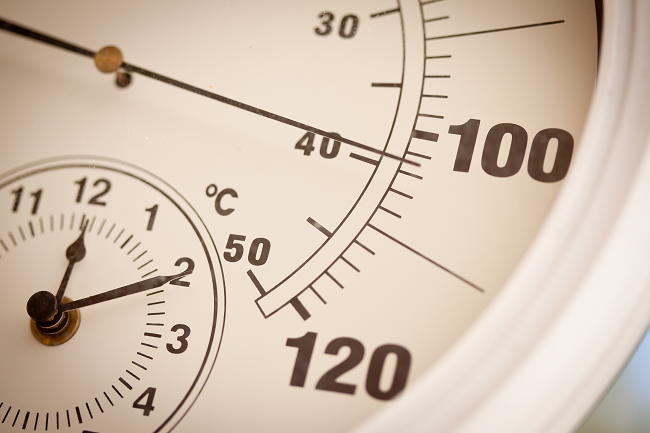When you’re in a hot place or outside during hot weather, headache, confusion, dizziness, or nausea could be a sign of a heat-related illness. And being hot for too long can cause a condition known as hyperthermia (hy-per-ther-mee-uh) — the opposite of hypothermia, the result of prolonged exposure to cold temperatures.
Too much heat is not safe for anyone, especially those over 50 or with health problems. The temperature outside or inside does not have to hit 100° F for you to be at risk for a heat-related illness. Having certain health problems, such as heart, lung, or kidney diseases, or taking certain medications can increase your risk, so make sure to ask how your prescription drugs might interact with heat or sun exposure.
Signs of heat-related illnesses may include painful cramping of muscles in your stomach area, arms, or legs; swelling in your ankles and feet; sudden dizziness that may occur when you are active in the heat; and heat exhaustion, a warning that your body can no longer keep itself cool. You might even feel thirsty, dizzy, weak, uncoordinated, nauseated, and sweat a lot.
If you do not quickly find relief from the heat, you may begin to feel confused or faint. These can be the first signs of heatstroke — the most severe and life-threatening heat-related illness. Other signs include a temperature over 104° F; sudden changes in behavior, like confusion, grouchiness, acting strangely, or staggering; dry, flushed skin and a strong rapid pulse or a slow weak pulse; and not sweating (despite the heat), acting delirious, or lapsing into a coma.
To keep heat-related illnesses from becoming a dangerous heatstroke, follow these tips:
- Get out of the sun and into a cool place — air-conditioning is best.
- Drink fluids, but avoid alcohol and caffeine. Water and fruit and vegetable juices are best.
- Shower or bathe, or at least sponge off with cool water.
- Lie down and rest — in a cool place if possible.
- Visit your doctor or an emergency room if you don’t cool down quickly.
Many people die of heatstroke each year. Older people living in homes or apartments without air conditioning or good airflow are at most risk. So are people who don’t drink enough water or those with chronic diseases or alcoholism.
If your home or apartment does not have fans or air conditioning, create cross-ventilation by opening windows (at night) on two sides of the building. Cover windows in direct sunlight, and keep curtains, shades, or blinds drawn during the hottest part of the day. And if you can, spend the hottest part of the day indoors — preferably with air-conditioning — like a mall, the movies, the library, a senior center, or a friend’s house.
If you or a loved one experience heat stroke, call 911. Erlanger Health System offers comprehensive emergency services to treat heat-related illnesses and other summer emergencies. Talk with your doctor about health problems that might put you at higher risk for heat stroke. Don’t have a doctor? Find one here.







